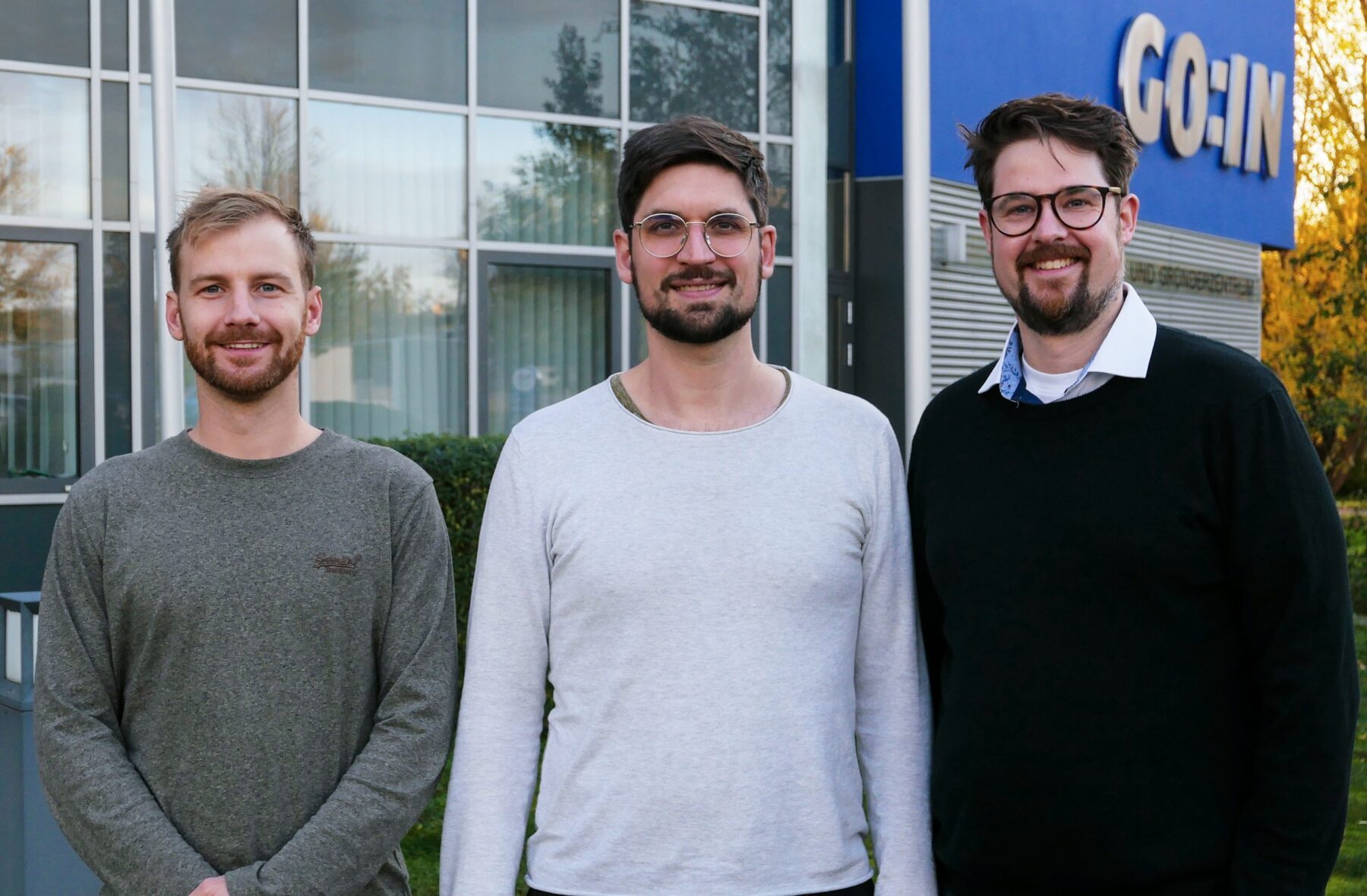
3 Questions with kez.biosolutions: »A Revolution in Basic Research« – Optimised Antibiotics Based on Natural Ingredients to Combat Resistant Pathogens
Antibiotic-resistant pathogens are becoming a serious concern. In 2019, more people died from infections with resistant pathogens than of HIV and malaria together. kez.biosolutions GmbH is a start-up that is working on a ground-breaking process for developing brand-new, optimised substances from natural ingredients, such as sugar beets, with substrates in a bioreactor. In our interview, kez.biosolutions founder Dr. Alexander Rittner tells us about the unique platform technology developed in a decade of basic research and about the young company’s plans for its future at Potsdam Science Park.
Dr Rittner, your company kez.biosolutions promises to develop substances produced in bioreactors that are effective against resistant pathogens. What is new about your approach?
Based on my dissertation, I headed a project in Frankfurt am Main as a postdoctoral researcher on fluorinating polyketides and developing this new technology. Polyketides are a natural product: They are produced by enzymes in cells, such as bacteria or yeast cells. They inhibit cell growth, for instance that of other bacteria, fungi or parasites, or even cancer cells. We know about 10,000 polyketides, which are used to produce natural medicines such as antibiotics, immunosuppressants or cancer drugs. So, it’s a very broad field. Based on this premise, we are developing a technological platform with the goal of it working for all microbial production strains. The process we are working on chemically alters the polyketides using fluorine, optimising them for use in the human body. The method bears enormous potential, for instance for overcoming resistances to antibiotics. We are the first to combine both worlds: We are harnessing nature’s power to efficiently produce complex molecules and combining it with state-of-the-art scientific methods from the fields of medicine and synthetic chemistry. We are currently still establishing our technology but were able to prove in a pilot study that it works. The research results are a revolution in basic research – we published them in Nature Chemistry in July 2022.
How exactly will your technology help create antibiotics that are effective against resistant pathogens?
As a matter of fact, antibiotics that are effective against resistant pathogens are one field of application of our technology. Drug resistances form over a period of time, during which bacteria or parasites get accustomed to the active substances and develop an ability to react to them. If you now alter the active substance in a targeted manner, the bacteria or parasitic organisms need to readjust – until then, they are no longer resistant. This is where our platform technology comes in: it allows us to alter a molecule in a controlled, targeted manner, in this case, a polyketide. We produce substances called polyketide derivatives with the help of bacteria and extremely cheap raw materials such as sugar beets or soy proteins, to which we add our substrates in a bioreactor. The bacterial cells use these to trigger specific functions in a defined section of the molecule, for instance inserting fluorine. At least theoretically, polyketide derivatives could be produced fully synthetically. But that’s no trivial matter, and also extremely expensive. We are able to produce these derivatives faster and at lower cost. Plus: As time goes by, our substance library will grow. We can then use it to look for better profiles or new pathogens.
What drives you as a scientist and entrepreneur?
One of my biggest motivators is creating something new. We create molecules that never have existed before, and I think that’s incredibly exciting. It’s also very fulfilling to see that the basic research I was involved in for a decade can now be applied in practice. We have invested so much time and effort. It’s important to me to see a result in the end: In this case, new substances that improve people’s lives. In November 2021, my business partner and high school friend and I decided to start our own business. We wanted to take the technology from the theoretical knowledge that it works to its practical application and, most importantly, to the cell level. It was only eight weeks from when we first started talking about it until the company was founded. In January 2022, we moved into the GO:IN1, and have been operating our lab at Potsdam Science Park since April 2022. Thanks to the density of the academic potential at the Science Park and the proximity to other institutions and businesses in the Berlin-Brandenburg metropolitan region, it’s an ideal location for us. We want to start our research and development activities as soon as possible. Since the beginning of November we are a team of three people. My former colleague has already joined us; he is our first employee. Next year, we will add microbiologists and working students to our payroll, growing the core team to five to ten people. We believe that by having our headquarters at Potsdam Science Park we are perfectly positioned for marketing our technological platform as a key technology for a wide range of applications in future.
Thank you for joining us, Mr. Rittner
This blog and the projects carried out by Standortmanagement Golm GmbH at Potsdam Science Park are funded by the European Regional Development Fund (ERDF) and the Federal State of Brandenburg.